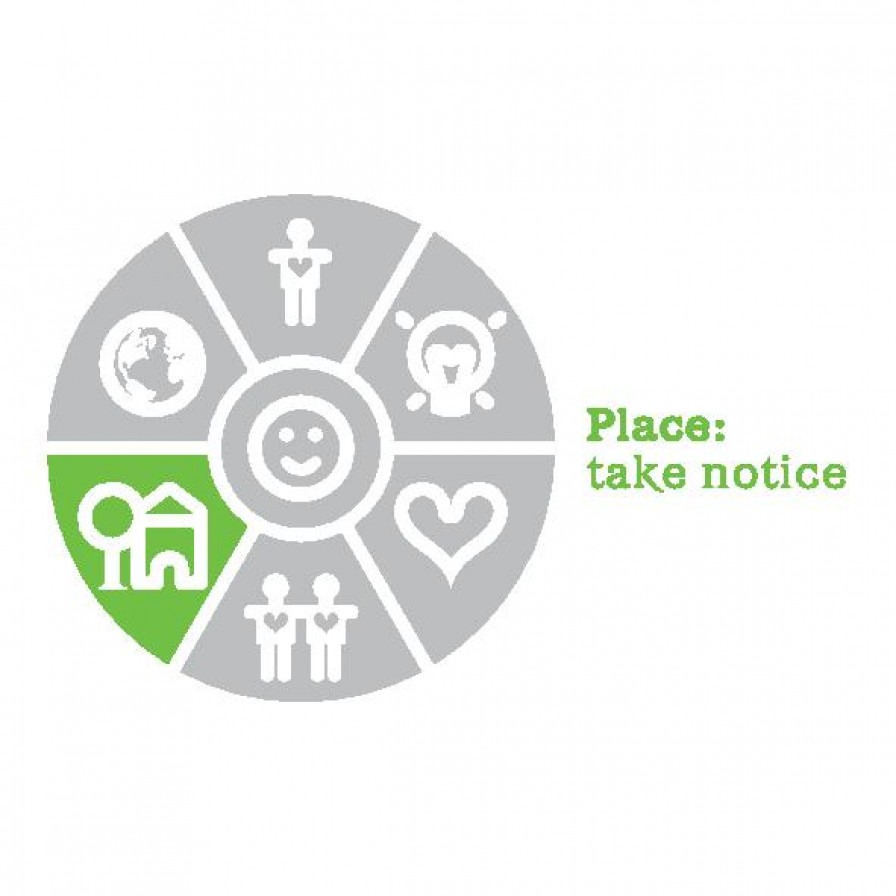Take Notice through music: Six Ways to Wellbeing

This week we are thinking about how music helps us stop and take notice and connects us to a place (in our memories, a sense of place or where we are now) and we reflect on music and memory, the everyday, our environment and lyrical content. ‘Take Notice’ is one of the ‘Six Ways to Wellbeing’ and we are delivering a programme using Ways in Maidstone in Kent which is funded by Kent County Council, with investment from Artswork and the Royal Opera House Bridge
Live it Well states that to Take Notice is to ‘Be curious. Catch sight of the beautiful. Remark on the unusual. Notice the changing seasons. Savour the moment, whether you are on a train, eating lunch or talking to friends. Be aware of the world around you and what you are feeling. Reflecting on your experiences will help you appreciate what matters to you.’
Music is that too! Music makes you curious, enables you to catch sight of the beautiful and remarks on the unusual - or so it should do! There is so much about music that makes you take notice I’m just touching on a few of them here.
Music and Memory
Music connects you to so many things - we all have songs that when we hear them take us back to a place, a moment in time, a person, a feeling and even a smell. There are songs that make us smile and others that can bring a tear to our eyes all because it makes us take notice of that special or difficult time in our lives. We all have those songs, the ones that stop us in our tracks and take us somewhere. It is no surprise to most people that the use of music is being increasingly used to support people with acquired brain injuries to unlock memories and stave off Alzheimer’s or other forms of dementia. Music and memory become increasingly entwined as our lives unfold.
Music and the everyday
We are surrounded by sound and music every day going in and out of our consciousness as we go about our daily business. Think about how much music and sound you hear everyday - music in shops, coming from cars, offices and homes - some welcomed and others not so much! Retailers use music to increase sales, get you through the shop quicker nearing closing time and ‘communicate their brand’.
So what do we do to block this out? We plug ourselves into our own music, choosing our own playlist for the environment we are in - but are we blocking out the everyday? Does that stop us taking notice of the world and people around us?
Music and our environment
Not only does music make you take notice of your surroundings but our surrounding have affected the ways in which music has been composed. The distance between notes has become smaller as acoustics of the venues that we listen to music in has changed - there’s some fascinating studies on the relationship between acoustics and religious buildings.
Check out Trevor Cox’s blog for more on this, he is a Professor of Acoustic Engineering at the University of Salford where he does ‘research and teaching focussing on architectural acoustics, signal processing and audio perception.’ he has recorded the longest echo, ‘creaking glaciers, whispering galleries, stalactite organs, musical roads, humming dunes, seals that sound like alien angels, and a Mayan pyramid that chirps like a bird.’ His brilliant blog is here
You can also check out his travel guide to our Sound World here – ‘listing places where what you hear is an important part of the experience.’
Lyrics and Taking Notice
A large part of what we do at Rhythmix, like many on the network, is using music as a tool to tackle the issues facing young people - our work focuses on young people writing their own music so that they can explore their own situations in a creative environment. Rhythmix tutors are very experienced in delivering issue based work, ensuring that the lyrical content explores young people’s issues, tackling negative stereotypes, sexism, racism and homophobia. We are asking young people every day to stop and take notice of the world around them and tell others about it. It’s really important that they express their own life experiences and not those projected by outside influences such as sub-cultures, artists and musicians.
What else?
We are sure there is more to how music makes you ‘Take Notice’ what do you think?
More information about Six Ways to Wellbeing
We are interested to hear what other organisations think about the Six Ways to Wellbeing and will be blogging over the coming weeks about our learning and experiences of the pilot programme.
The Six Ways to Wellbeing are:
- Connect: People
- Be active: Body
- Take notice: Place
- Keep learning: Mind
- Give: Spirit
- Care: Planet
You can find out more about Six Ways to Wellbeing
Website: www.sixwaystowellbeing.org.uk
Facebook: www.facebook.com/liveitwellkent
Twitter: https://twitter.com/liveitwelluk @liveitwelluk
#sixwaystowellbeing
PREVIOUS SIX WAYS BLOGS
1) Introduction Ways to Wellbeing Through Music: Here we introduce the ‘Ways’, look at how our tutors have adopted the ‘Six Ways to Wellbeing’ using music to engage the ethos behind the project and Russ Grooms (Project Manager) reflects on the programme as a whole. Article here
2) Connect with People Through Music: Six Ways to Wellbeing Lucy Stone, our Strategic Director reflects on the minutiae of music making and how music making enables young people to connect with peers and their communities. Article here
3) Be active through music: Six Ways to Wellbeing Russ Callaghan Grooms, the project manager, reflects on his early days listening to his walkman and how music, movement and being active go hand in hand. Article here
